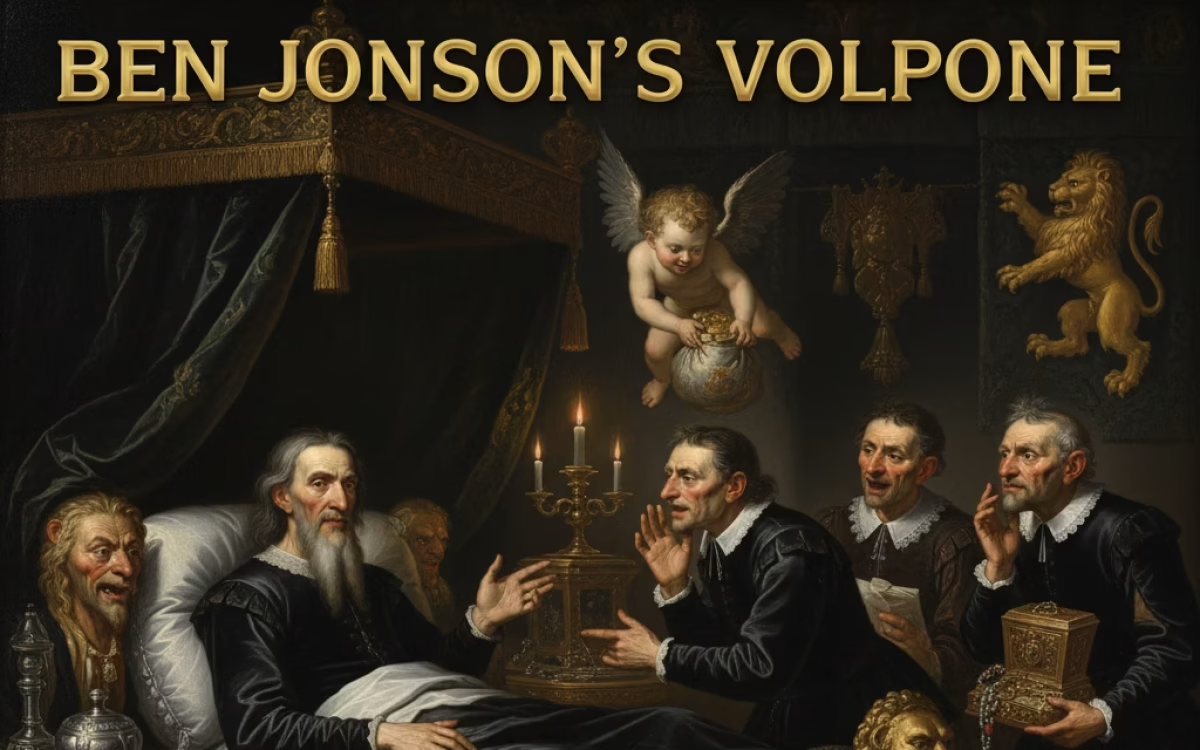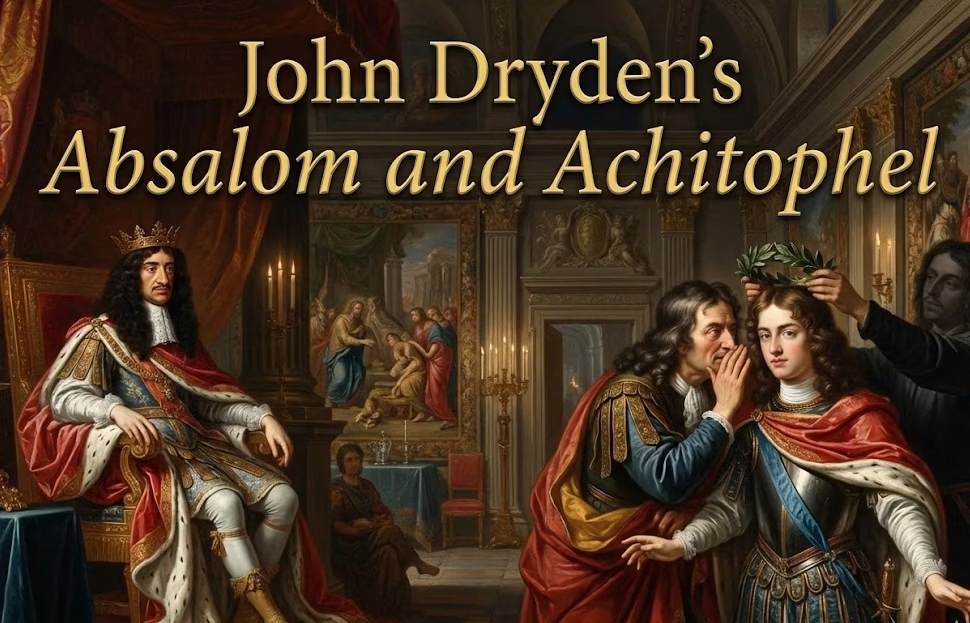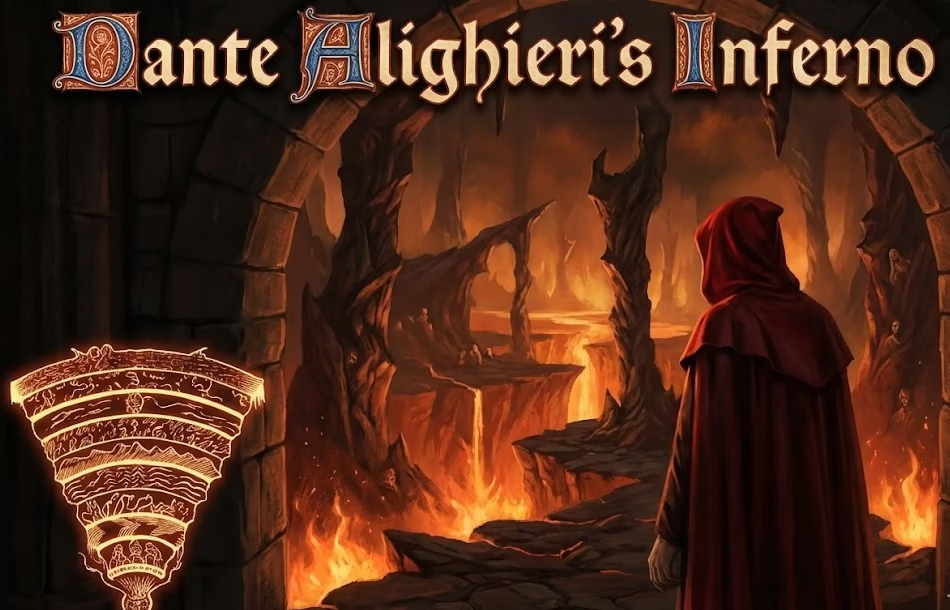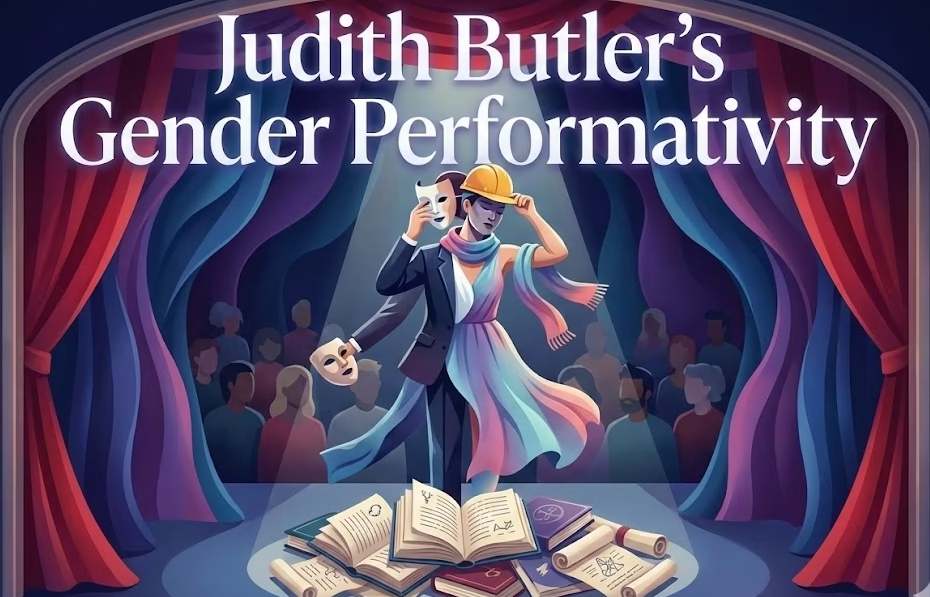Introduction: The Enduring Power of Volpone
Ben Jonson’s Volpone stands as one of the most brilliant and enduring comedies of the English Renaissance, renowned for its sharp satire, vivid characters, and unflinching exploration of greed and corruption. First performed in 1605–1606, Volpone (Italian for “sly fox”) remains Jonson’s most-performed play and a cornerstone of Jacobean drama, blending city comedy with the timeless motifs of the beast fable. In this comprehensive analysis, we delve into the plot, characters, themes, and lasting legacy of Volpone, revealing why it continues to captivate audiences and scholars alike.
Ben Jonson’s Volpone: An Overview
At its core, Volpone is a tale of deception and avarice set in the opulent world of Renaissance Venice. The wealthy, childless Volpone feigns a fatal illness to lure three fortune hunters—Voltore the lawyer, Corbaccio the miser, and Corvino the merchant—into showering him with extravagant gifts, each hoping to be named his heir. Volpone’s cunning servant, Mosca (“the fly”), orchestrates the ruse, manipulating the suitors and escalating the farce to ever more absurd heights.
The plot thickens as Volpone becomes infatuated with Celia, Corvino’s beautiful wife. In a further act of manipulation, Mosca convinces Corvino to offer Celia to Volpone, believing it will secure his place as heir. The scheme unravels in a courtroom showdown, where lies and false testimony threaten to condemn the innocent and reward the guilty. Ultimately, Jonson delivers poetic justice: each schemer is punished according to their crimes. Thus, the play ends with a scathing moral lesson on the dangers of unchecked greed. READ TEXT
Ben Jonson’s Volpone Characters: Archetypes and Allegory
Jonson’s characters in Volpone are more than individuals—they are vivid embodiments of human vices, each named after an animal that reflects their nature:
Volpone (“the Fox”): The cunning protagonist, a master of deception and trickery.
Mosca (“the Fly”): Volpone’s parasitic servant, who thrives by manipulating others.
Voltore (“the Vulture”): A lawyer driven by greed, circling Volpone in hopes of inheritance.
Corbaccio (“the Raven”): An old miser, willing to disinherit his own son for wealth.
Corvino (“the Crow”): A merchant so blinded by avarice he offers his wife to Volpone.
Celia: Corvino’s virtuous wife, representing innocence amid corruption.
Bonario: Corbaccio’s son, a rare figure of integrity.
Sir Politic Would-Be and Lady Would-Be: English travellers, satirising social pretensions and folly.
Jonson’s use of animal symbolism and caricature draws from the tradition of beast fables, making each character an allegory for a particular vice or folly. This technique heightens the play’s satirical impact and universal relevance.
Ben Jonson’s Volpone Themes: Greed, Corruption, and Satire
Greed in Volpone
The dominant theme of Volpone is greed—not only for money, but for power, pleasure, and status. From the opening scene, where Volpone worships his gold with quasi-religious fervor, Jonson exposes the corrosive effects of avarice on individuals and society. The fortune hunters’ willingness to betray family, morality, and dignity underscores the play’s warning. It underscores unchecked greed leads to self-destruction.
“O thou son of Sol,
But brighter than thy father, let me kiss
With adoration, thee, and every relic
Of sacred treasure in this blessed room.”
—Volpone, Act I
Satire in Volpone
Jonson’s genius lies in his satirical vision. He lampoons not only the greedy but also the corrupt legal system, the superficiality of Venetian society, and the moral blindness of those who pursue wealth at any cost. The play’s humour is biting, often dark, exposing the absurdity and cruelty of human behaviour. Additionally, Jonson’s Venice is a world where every man is either a knave or a fool, and virtue is a rare exception.
Corruption and Justice
Volpone also interrogates the nature of corruption and the failure of institutions meant to uphold justice. The Venetian court is easily deceived, and only the collapse of the schemers’ alliance brings about justice. Jonson’s ending is uncompromising: the guilty are punished, but not before the audience witnesses the full spectacle of their moral decay.
Ben Jonson’s Volpone Analysis: Structure, Setting, and Style
Dramatic Structure and Comedy of Humours
Jonson structures Volpone as a tightly woven farce, where every action is driven by the characters’ dominant “humours”—their overriding passions or vices. The plot is a series of escalating deceptions, culminating in a courtroom climax that exposes the truth. This “comedy of humours” approach allows Jonson to explore the psychology of greed and folly with surgical precision.
Setting: Venice as a Symbol
The setting of Venice is no accident. For Jonson’s audience, Venice was synonymous with wealth, intrigue, and moral ambiguity. Volpone’s lavish house, filled with hidden treasures and secret chambers, becomes a metaphor for the hidden corruption of society. The city’s reputation for harsh justice is reflected in the play’s uncompromising conclusion. FOR MORE DETAILS
Language and Imagery
Jonson’s language is rich in irony, wit, and classical allusion. He employs religious imagery to mock the worship of gold, and animal metaphors to underscore the predatory nature of his characters. Moreover, the dialogue crackles with double meanings and verbal dexterity, rewarding attentive readers and audiences.
Ben Jonson’s Volpone: Why It Still Matters
Volpone endures because it speaks to universal truths about human nature. Jonson’s portrayal of greed, hypocrisy, and self-delusion is as relevant today as it was in the early 17th century. The play’s influence extends beyond literature, inspiring adaptations in opera, film, and modern theatre.
Critics have long debated Jonson’s moral purpose. While some find the play’s world relentlessly cynical, others see in its ending a reaffirmation of justice and the possibility of redemption. What is clear is that Volpone invites us to laugh at folly—but also to recognise it in ourselves.
Ben Jonson’s Volpone: Key Takeaways
Volpone is a satirical comedy by Ben Jonson, first performed in 1605–1606.
The play centers on Volpone, a wealthy Venetian who fakes illness to swindle greedy would-be heirs.
Jonson uses animal symbolism and the comedy of humours to create vivid, allegorical characters.
The main themes are greed, corruption, and the abuse of power.
The play’s setting in Venice amplifies its exploration of opulence and moral decay.
Volpone remains a powerful critique of human folly and a masterpiece of English drama.
Frequently Asked Questions
What is the main message of Volpone?
The main message is a warning against the destructive power of greed and the moral corruption it breeds. Jonson uses satire to expose the folly and vice of those who pursue wealth at any cost.
Who are the main characters in Volpone?
The central figures are Volpone (the fox), Mosca (the fly), Voltore (the vulture), Corbaccio (the raven), Corvino (the crow), Celia, and Bonario.
How does Jonson use satire in Volpone?
Jonson satirises not only individual greed but also societal corruption, the legal system, and the superficiality of social status, using humour, irony, and allegory.
Why is Volpone still relevant today?
Its exploration of greed, hypocrisy, and self-deception remains pertinent in any age, making Volpone a timeless study of human nature.
Conclusion: The Timeless Appeal of Volpone
Ben Jonson’s Volpone is more than a comedy—it is a mirror held up to human folly, a biting critique of greed, and a testament to the enduring power of satire. Through its unforgettable characters, intricate plot, and moral vision, Volpone continues to engage, entertain, and provoke audiences, ensuring its place among the greatest works of English literature. EXPLORE OTHER WORKS





